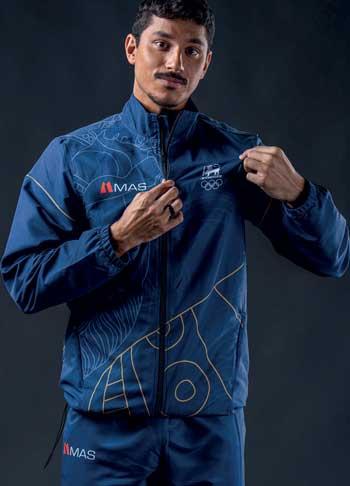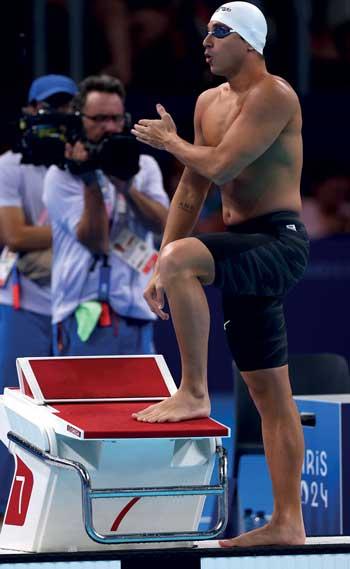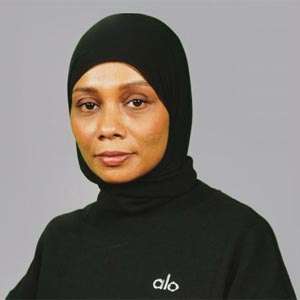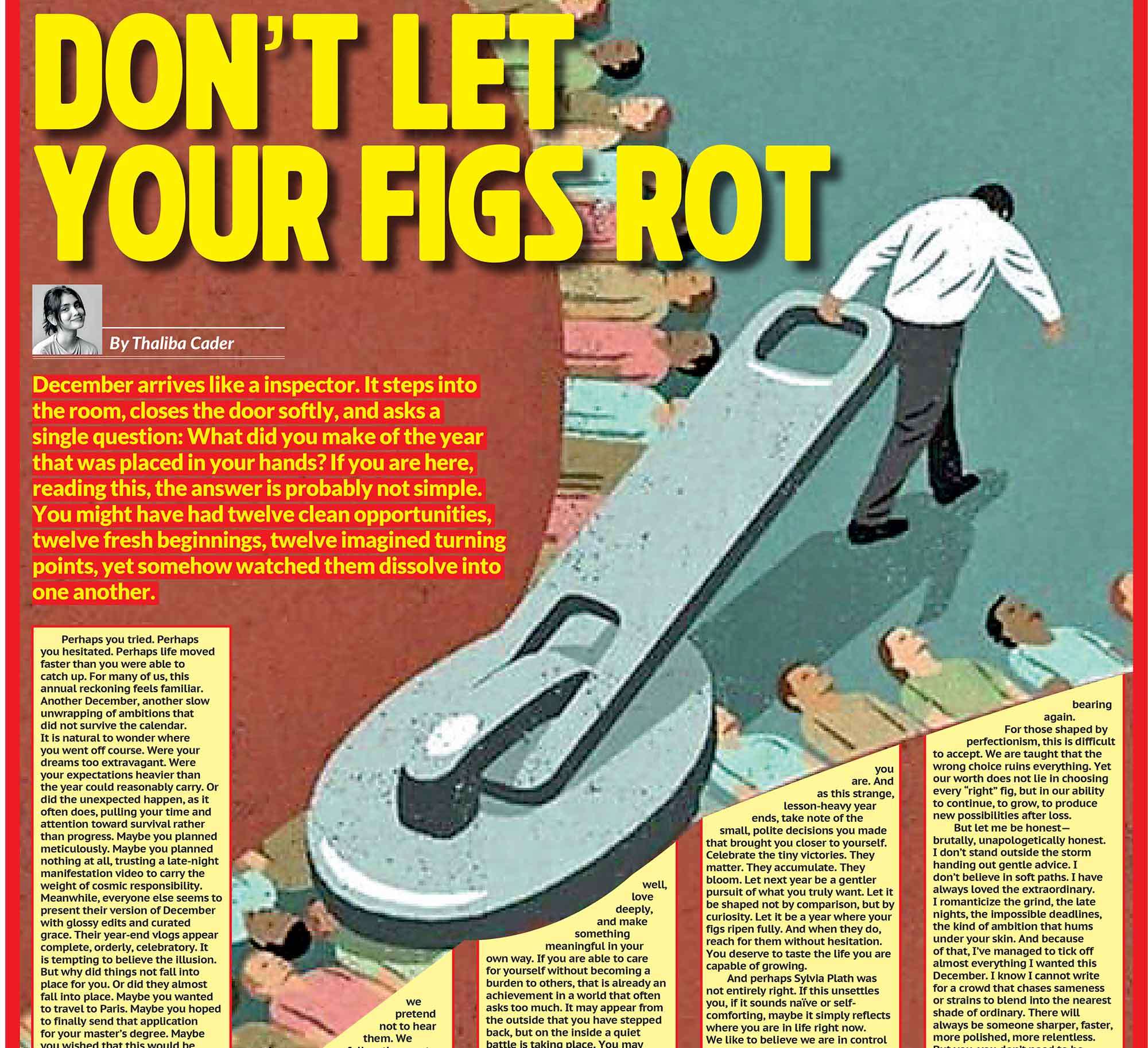 We have someone very special on Raise The Bar today, an Olympian swimmer whose exceptional talent and unwavering resilience have brought immense pride to Sri Lanka. Representing the nation on the world stage at numerous international events, Kyle Abeysinghe has not only broken national records but also reshaped the future of Sri Lankan swimming. A standout member of the Killer Whale Aquatic Club, where he is coached by his father Manoj Abeysinghe, Kyle made history at the 2017 Commonwealth Youth Games in the Bahamas, becoming the first Sri Lankan swimmer to win medals at a Commonwealth-level international meet. Most recently, he carried the national flag into the 2024 Paris Olympics, fulfilling a lifelong dream. In this edition, we dive into Kyle’s journey, the triumphs, the setbacks, the mental battles, and the sheer will to rise again. This is more than just a sporting story. It’s a testament to courage, character, and comeback.
We have someone very special on Raise The Bar today, an Olympian swimmer whose exceptional talent and unwavering resilience have brought immense pride to Sri Lanka. Representing the nation on the world stage at numerous international events, Kyle Abeysinghe has not only broken national records but also reshaped the future of Sri Lankan swimming. A standout member of the Killer Whale Aquatic Club, where he is coached by his father Manoj Abeysinghe, Kyle made history at the 2017 Commonwealth Youth Games in the Bahamas, becoming the first Sri Lankan swimmer to win medals at a Commonwealth-level international meet. Most recently, he carried the national flag into the 2024 Paris Olympics, fulfilling a lifelong dream. In this edition, we dive into Kyle’s journey, the triumphs, the setbacks, the mental battles, and the sheer will to rise again. This is more than just a sporting story. It’s a testament to courage, character, and comeback.
QDescribe yourself in three words.
I’m not a fan of self-labeling, but if I had to choose, I’d say: perseverant, hard-working, and I try to be humble, something my parents emphasized from an early age.
QWhat was your first major international competition, and at what age did you first represent Sri Lanka?
That would be the FINA Youth Program in 2014, now known as World Aquatics, held in Doha, Qatar. I was just 14 years old.
QHow did the transition from swimming as a hobby to a professional pursuit unfold?
Swimming was never just a hobby, and it never felt like a job either. I’ve always loved it. Being the youngest of four brothers who all represented Sri Lanka in swimming, the sport was simply part of my daily life. I began to embrace the competitive side around 13 or 14, and that’s when I truly found my drive.
QWho inspires you most, both in and out of the pool?
Michael Phelps is a huge inspiration. His mindset and sacrifice, especially training non-stop between 2003 and 2008, even through holidays, is something I deeply admire. Outside the pool, I look up to Kumar Sangakkara for his integrity and discipline. I also draw from the mental tenacity of Michael Jordan and Kobe Bryant. Closer to home, my biggest inspirations are my older brothers, Mathew, Andrew, and Dillon, and of course, my parents, who’ve been my support system through everything.
 QWhat’s one piece of advice you’d give your younger self starting the Olympic journey?
QWhat’s one piece of advice you’d give your younger self starting the Olympic journey?
I worked my entire career for that Olympic moment. I had hoped it would come sooner, I was aiming for Tokyo 2020, but life had other plans. If I could speak to my younger self, I’d say: stay patient, keep going, and trust the timing.
QWhat was it like walking into the Paris 2024 Olympic arena for the first time?
It was everything I imagined and more. I had visualized that moment for years, the banners, the atmosphere, the anticipation. While my race didn’t go exactly as planned, the experience itself was unforgettable. The pool was a bit shallower than expected, which altered the swim’s feel slightly, but that’s not an excuse. At the Olympics, no condition should phase you. You take full ownership of your performance.
QLooking back, is there anything you would have done differently at Paris 2024?
Honestly, no. I believe in standing by my decisions. I did everything I could. Even though the outcome didn’t match the vision I had carried for years, I look back with pride. I gave it my all.
QIn 2018, you faced a serious mental health challenge that took you away from swimming for four years. Could you share what you went through and how it affected your life and career?
Yes, during the 2018 Asian Games in Jakarta, I had one of my best performances, ranking 13th in Asia in the 100m freestyle. I took a short break afterward to rest, and during that time, I experienced what I now recognize were hallucinations. At first, I dismissed them. But by early 2019, they became intense and disruptive. A specific incident at the pool alarmed my family and teammates, and that was the turning point. It took months to find clarity, especially in Sri Lanka, where mental health resources are limited. Eventually, I was diagnosed with schizophrenia. It shook me. Before this, I didn’t understand mental illness. I probably even carried some stigma myself. It changed my life and took four years from my career, but today, I’ve accepted it. And I try to see the transformation it brought in a positive light.
QBeing sidelined must have been frustrating. How did you cope during those years?
At first, I didn’t. I felt lost. I had mapped out my life through to my thirties, and suddenly, all of that vanished. I sank into a depressive episode, grieving the life I had envisioned. But slowly, with support from my family, especially my brothers, I began to rebuild. I wasn’t even thinking of returning to swimming at that point. I just wanted to get my life back on track.
QWhat role did mental resilience play in your recovery?
It was everything. Sports, particularly swimming, had already conditioned me to manage stress and pressure. That mental training helped fast-track my recovery. Once I got out of the slump, I redirected all my energy into rebuilding myself, mentally, physically, emotionally. And eventually, that led me back to the pool.
QCan you share what your current training routine looks like?
Right now, it’s a bit lighter than Olympic season. I’m planning to ramp up soon with around 8 to 9 swim sessions per week and 3 gym sessions. During Olympic prep, I trained 7 days a week in the pool and had 3 strength sessions. I now have to be mindful, as fatigue is the only remaining trigger for my schizophrenia. Balance is essential.
QWhat does your recovery routine look like, especially on rest days?
Sunday is my rest day. Throughout the week, I do foam rolling, myofascial release, cupping therapy, and acupuncture. Sundays are for massages and ice baths. Mentally, I decompress by spending time with friends or surfing. I enjoy sports, but besides swimming, I’ve never really competed in anything else.
QHow important is nutrition in your routine?
Closer to competitions, I follow a strict, clean diet. I’ve had to cut back on sugar as I’ve gotten older. I monitor my macronutrients, ensuring I get the right balance of carbs, proteins, and healthy fats. Nutrition is essential for performance and recovery.
QWhat do you remember most about your first time representing Sri Lanka in 2014 at the FINA Youth Program in Doha?
I remember putting on the national kit and thinking, I’ve made it. My older brothers had worn it before me, and that moment felt like a rite of passage. It was a development program, not a competition, but swimming alongside talent from around the world humbled me. It opened my eyes to the level I needed to reach.
QYou broke national records at the FINA World Championships in 2016. What did those achievements mean to you?
I didn’t go in expecting to break records. I just wanted to meet my personal goals. One of the records I broke belonged to my brother Mathew, and another was held by Heishan Onambuwa, who I looked up to. That was a full-circle moment for me.
QWinning two silver medals at the 2017 Commonwealth Youth Games was historic. How did it shape your career?
That was a defining moment. I had dengue just before the meet and missed a couple of weeks of training. Doctors advised rest, but I pushed through.
At the Games, I switched off my brain and let my body take over. Seeing the Sri Lankan flag next to my name on the international scoreboard made me incredibly proud. That experience elevated my confidence and visibility in the sport.
QWhat advice would you give young Sri Lankan swimmers who want to pursue competitive swimming seriously?
Be patient. There’s so much pressure from parents, coaches, and school. That pressure burns out many swimmers before they turn 17. Very few make it beyond that. Long-term development and a solid support system are crucial. Focus on the journey, not just quick success.
qFrom your vantage point as both an athlete and coach, what does Sri Lankan swimming need in the next decade?
First, we need more swimmers. Then, we need better infrastructure. Swimming is an expensive sport, and access to quality pools, equipment, and coaching needs to improve. We also need a sustainable coaching structure, where knowledge is passed down effectively. There’s a long way to go, but those are the key priorities.
QWhat’s next for you competitively?
I’m eyeing the Asian Swimming Championships in a few months, followed by the South Asian Games, and hopefully the Commonwealth Games next year.
We wish Kyle Abeysinghe the very best in his upcoming competitions and look forward to watching him continue to make waves on the global stage. Stay tuned to Raise The Bar as we bring you more inspiring stories of Sri Lanka’s finest athletes.











